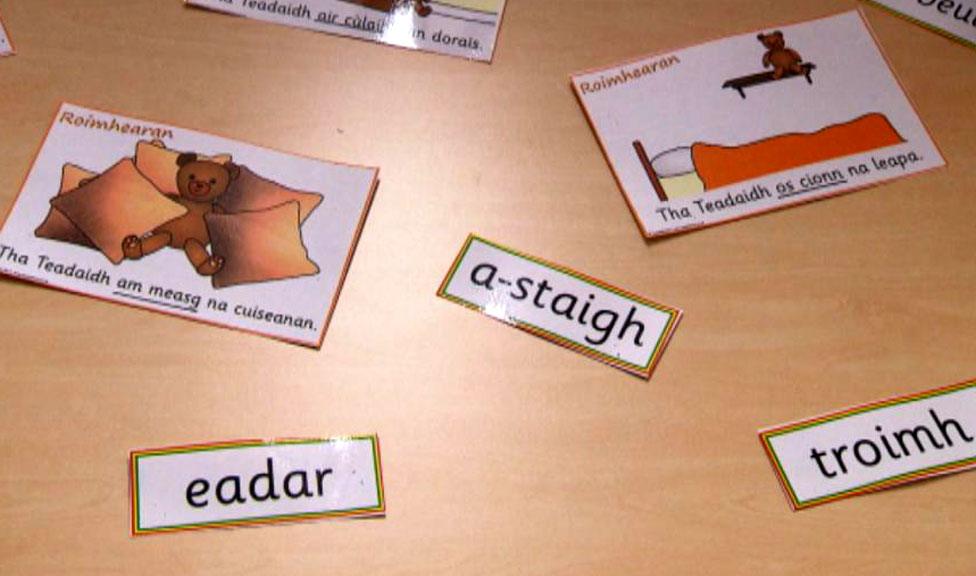Gaelic to be 'default' language for new pupils in Western Isles schools
- Published

Children starting school in the Western Isles this summer will be taught in Gaelic, unless their parents opt-out.
Until now parents had to opt in to Gaelic-medium education (GME) on the islands, where lessons in English was the default.
But from August, all new P1 children will enrol in GME unless their parents request otherwise.
The move was prompted because more than half of parents were expected to choose Gaelic-medium education.
Western Isles council, Comhairle nan Eilean Siar, is the first of Scotland's 32 local authorities to make the move.
The islands has Scotland's largest Gaelic speaking community.
GME sees lessons delivered in Gaelic until P4 and then English is introduced, with the aim of giving children a bilingual education.
'Rich Gaelic heritage'
Head teachers and parent councils were notified of the move in a letter from the comhairle last week.
GME is available across Scotland and is taught in dedicated Gaelic primary schools in Glasgow, Edinburgh, Portree in Skye, Inverness and Lochaber and in units within English medium education schools elsewhere.
Education director Bernard Chisholm said the Western Isles had a "rich Gaelic heritage and culture".
He said: "The majority of our children in nursery and those enrolling in primary, want to speak our language.
"A significant number of families, who move to the area without Gaelic, enrol their children in GME for the additional benefits of bilingual education."
Mr Chisholm added: "I believe that we all want our children to access the undoubted benefits that GME provides, in both English and Gaelic, in terms of reading, thinking skills, problem solving, maths and in many other areas."


The decision to presume all new primary one pupils in the Western Isles will be educated in Gaelic is hugely important symbolically.
However it also reflects the reality of life in the area.
Nearly half of new primary one pupils in the islands were already being educated in Gaelic at the parents' request - at some schools new P1 pupils being educated in English were in the minority.
In many respects the situation in Western Isles is unique. This is unlikely to set any sort of precedent for other councils.
Firstly Gaelic is widely spoken in the Western Isles.
Secondly all schools in the area already offered the opportunity of education through the medium of Gaelic.

In other parts of the country, Gaelic education is generally offered through dedicated units within other schools or in specialist schools.
These units take in children from a far wider area than a normal catchment area.
It is important to stress that the issue here is about the right of a child to receive their whole education principally through the Gaelic language - it is not about teaching Gaelic as a standalone subject or an additional language. That is a distinct issue.
Children in the Western Isles will still be able to be schooled principally in English if their families prefer. However clearly there will be a challenge for the council to ensure that there is a parity of esteem between the two options.
The first Gaelic medium units were set up in the mid 1980s after passionate campaigning by Gaelic speakers.
For those champions of the language, it would be incredible to think that education through Gaelic would become the "default option" barely 30 years later.